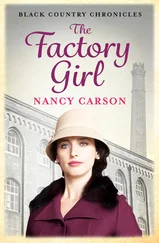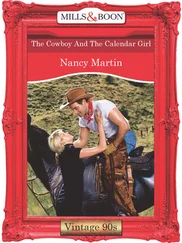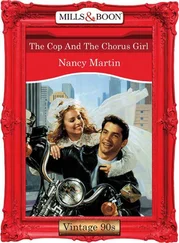Bobby had installed himself at the side of the table near Haden and waited patiently with imploring eyes for a morsel to descend to the stone flags of the floor. But Haden was in full flow.
‘As it happened, the ground had been softened by rain a day or two before, and as the kerfuffle started nobody noticed that the stake had come loose in the mud. I tell yer, there was plenty fun as them dogs baited the bear, but then it dawned on everybody that the bear had got free. We all ran for our lives, and the poor bugger in the white smock fell over. He was rolled over umpteen times in the mud as folk trampled all over him.’ Haden laughed aloud as he recalled it. ‘He was a sight – the poor bugger did look woebegone.’
‘Then what happened?’ Lucy asked, wide-eyed.
‘The daft thing was, the poor bear was as frit as everybody else, and run off back to the pigsty.’
‘The poor, poor bear,’ she said full of sympathy for the animal. ‘I’m glad they put a stop to all that savagery.’
‘Savagery?’ Haden repeated. ‘I’ve seen savagery. I’ve watched bull-baiting at the Whimsey – in the days when everybody called it “Turley’s”. Once, a bull gored a bulldog, pushing his horns right into its guts. He ripped it open and tossed it higher than the house.’
‘Ugh! That’s enough to put you off your dinner,’ Lucy complained, turning her mouth down in distaste.
‘Another time at a wake,’ Haden went on, ‘I watched a bull, that was maddened by the dogs, break free of his stake and cause havoc among the crowd. When they caught him they slaughtered him without a second thought and cut him up, and the meat was sold to anybody as wanted it at a few coppers a pound. Then they all trooped off to watch the next baiting.’
‘I’m only glad it doesn’t go on now,’ Lucy said. ‘Do you remember it, Mother?’
‘I remember it going on. I’d never go and watch such things meself, though. But then I had you kids to look after.’
‘Yes, they was rough days,’ Haden admitted. ‘We only had one parish constable in them days and he couldn’t be everywhere. Like as not he was paid to turn a blind eye, especially by the street wenches or their blasted pimps. But folk was poor and nobody had any education. They knew no better, knew no other life. These days, there’s work about and while they’m still poor, they ain’t as hard done by as they used to be.’
Bobby impatiently tapped Haden’s leg with his paw to remind his master that he was still awaiting a morsel.
‘Lord, I forgot all about thee, mutt,’ he said, picking a thigh bone from his plate and tossing it to the dog. ‘Here, that’ll keep thee going for a bit.’
Arthur Goodrich, a man of average height and average looks, was twenty-five years old. He was a stonemason by trade, employed in the family firm of Jeremiah Goodrich and Sons, Monumental Masons and Sepulchral Architects. While Jeremiah, Arthur’s father, tended to concentrate on the sepulchral design and construction side of the business in the relative comfort of the workshop along with Talbot, Arthur’s older brother, poor Arthur, by dint of being younger and thus subordinate, was meanwhile generally despatched to the further reaches of the Black Country to effect the more menial, though no less skilled, work of cutting and blacking inscriptions on existing headstones in the area’s sundry graveyards. For Arthur this was an eternal source of discontent to add to his many others.
Thus it was one Saturday morning in late September. Arthur, complete with a toolbag full of freshly sharpened chisels, several wooden mallets, a cushion to sit on and various other appliances of his craft, had been despatched early to the hallowed ground of St Mark’s church in Pensnett, a good twenty minutes’ walk even for a sprightly lad like himself. The apathetic morning had rounded up a herd of frowning clouds that matched Arthur’s mood. He hoped that the rain would keep off, for today was the last cricket match of the season, against Stourbridge Cricket Club, and he had been picked to play.
He had been assigned two headstones to amend that day and possessed a rough plan on paper of where they were situated within the graveyard. He located the first, a shining black grave, the granite imported at vast expense on behalf of the occupier’s wife. The deceased had been a local claymaster, piously religious and a pillar of local society. Arthur put down his toolbag, sat on the grave and read the inscription to himself:
‘ To the memory of Jacob Onions who passed away 15th October 1853.
Farewell dear husband must we now part,
Who lay so near each others’ heart.
The time will come I hope when we
Will both enjoy Felicity.’
Composed, obviously, by a grieving Mrs Onions, hoping for the better fortune of someday lying together again. Well, now that same grieving wife had joined her beloved husband, and Arthur was to append the inscription that confirmed it. He fumbled in the pocket of his jacket for the two pieces of paper that told him which words to cut on the relevant headstones. Just at that moment, an ominous pain convulsed his stomach and he trapped the piece of paper under the grave vase so that he could clutch his aching gut. Within a few seconds the pain had gone.
Wind.
A decent breaking of wind would relieve it. He lifted one cheek experimentally but nothing happened, so he took the cushion from his toolbag, an essential item of kit when sitting or kneeling on cold graves for hours on end, and placed it beneath him near the headstone. He opened a jar of grey paint – some magical kind that dried quickly and could be easily scraped off afterwards – grabbed a brush and daubed the area to be marked out with the lettering. While it dried, he located the other grave and performed the same task there. He read the inscription already carved on that headstone too.
‘In remembrance of Henry Tether who died in his cups 6th June 1840, a free spirit who in his lifetime would have preferred all spirits to be free.’ So poor Henry Tether had a partiality for drink. Now it was time to add the name of Henry’s dear departed wife Octavia after sixteen years of widowhood. He left the scrap of paper that held the words for its appended inscription under its grave vase also, to save fumbling later for it in his pockets.
As Arthur made his way back to the first grave he was gripped again by the menacing pain in his stomach. Perhaps he was pregnant somehow and he was having contractions … No, that was plain stupid. He was a man, and men didn’t give birth. Besides, he was not wed so how could he possibly be pregnant? Of course, it was something he’d eaten that had upset his stomach. He attempted to break wind again but … oh, dear … It was a mistake. Perhaps he shouldn’t, for fear of an embarrassing accident.
He returned to the first grave and checked the paint. It was dry. It would not take long to mark out the lettering that was to be added, and nobody at the firm was as quick as him when it came to cutting letters. He picked up his blacklead to mark it out …
The pains in his gut returned … They were persistent now and he could hear a tremendous amount of gurgling going on there, as if there were some serious flaw in his intestinal plumbing. It was obvious he must hurry his work, for there were no privies within a quarter of a mile that he could discern. He dared not stoop to do it in the graveyard either, for it was on high ground, exposed to the passing traffic of Pensnett High Street, for all to witness. The vicar might appear like the risen Christ just at the crucial moment … it would be just Arthur’s luck. So, in agony, he carried on marking out the letters and words, taken from the piece of paper he was working from.
Читать дальше












